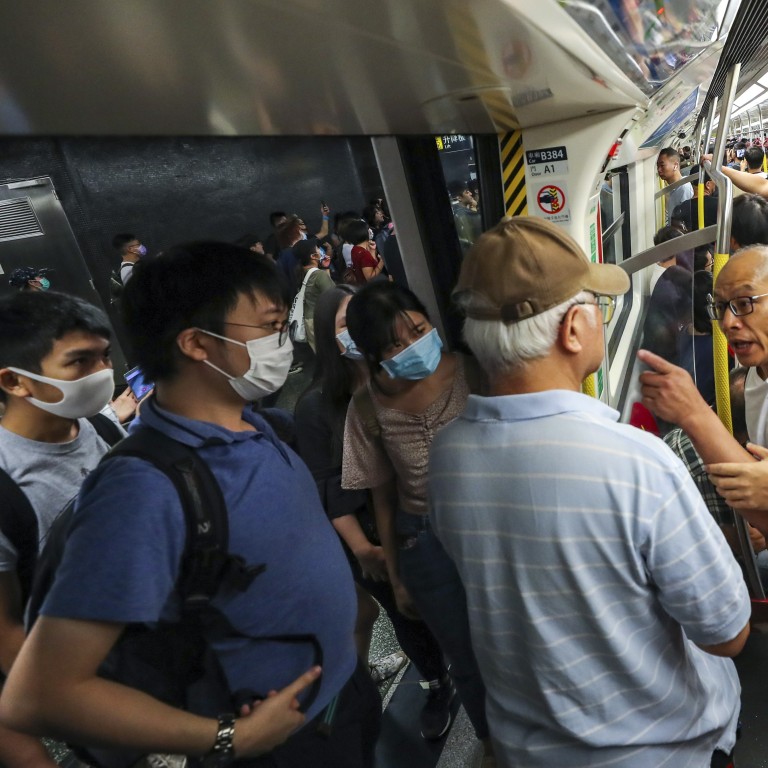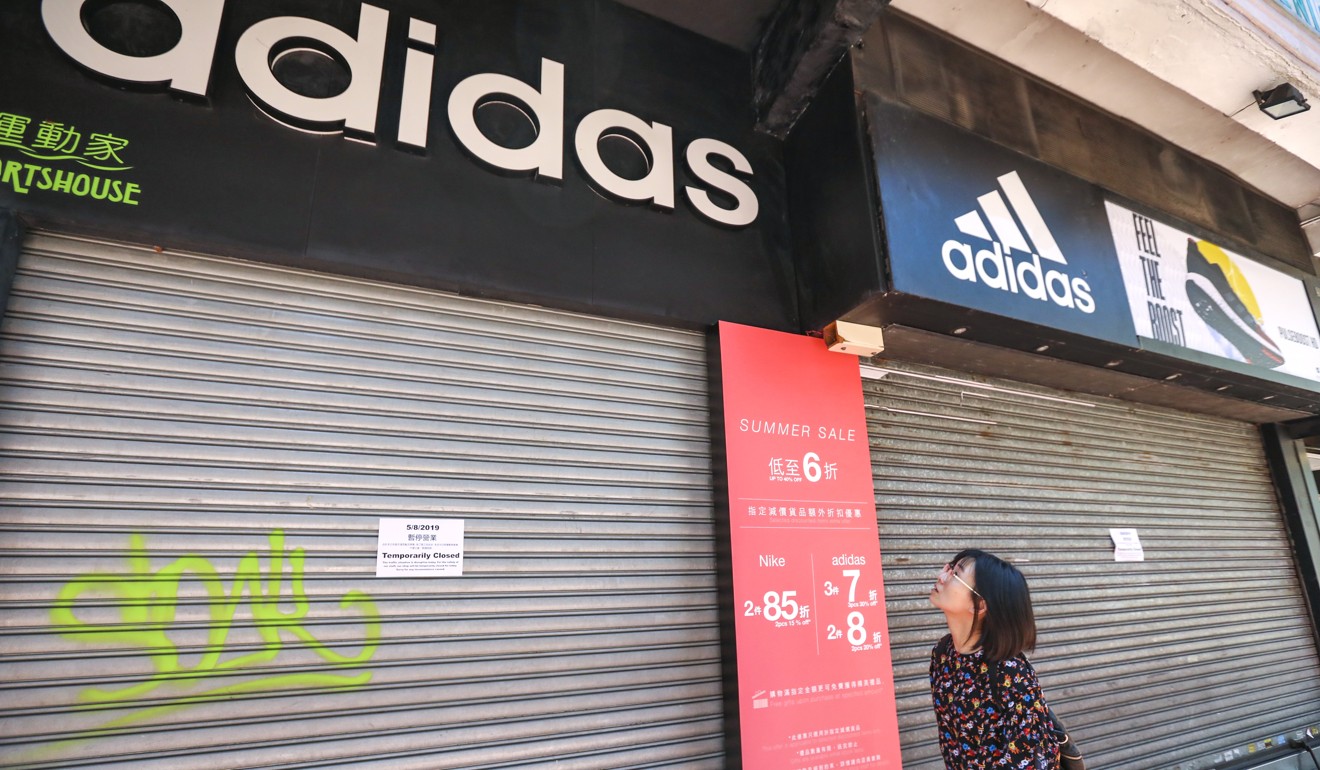
Commuters and businesses take hit from Hong Kong’s anti-government strike
- Emergency services vehicles are forced to detour around roadblocks as protesters obstruct traffic
An anti-government strike that paralysed transport across Hong Kong on Monday not only brought chaos for tens of thousands of commuters but also hit businesses and emergency services in the international financial hub.
Shop owners said they suffered a big drop in business, while a senior fire services officer said the demonstrators obstructed ambulances and fire engines.
The comments came after protesters brought the city’s MTR subway system to a near standstill during the morning rush hour by blocking train doors and pressing emergency buttons. By about 10.12am, all MTR lines were affected, and the system did not resume normal services until around 1pm.
While some commuters and visitors said they were sympathetic to the protesters, scuffles and arguments erupted between MTR users and the demonstrators. In Tuen Mun, protesters gave out free burgers to affected passengers and drivers to apologise for the inconvenience.
Hong Kong residents wake up to transport chaos with suspended train service, blocked roads and cancelled flights as extradition bill protesters launch citywide strike
Protesters also blocked several major highways, including the Cross-Harbour Tunnel in Hung Hom, as well as Nathan Road in Mong Kok, Lung Cheung Road in Wong Tai Sin, Harcourt Road in Admiralty and Tuen Mun Highway in Tuen Mun.
They walked down the middle of the roads, and used metal barricades, rubbish bins and other items to block vehicles and snarl traffic.
Some 250 flights were cancelled on Monday as various airport staff, ranging from flight attendants to air traffic controllers, called in sick in support of the day’s action.
The Fire Services Department said roadblocks set up by protesters around the city had obstructed ambulances and fire engines.
The department also said it was concerned about the potential risk of bombs being set off in dense urban areas.
“Officers needed to remove barriers before they proceed on some occasions. On other occasions, they have to take a detour,” deputy chief fire officer Cheng Sui-on said.

In Tsim Sha Tsui, a shopping district popular with tourists from mainland China, there were noticeably fewer people on the streets than usual.
David Ong, a 60-year-old businessman visiting the city with his wife and young son, said he would delay future business trips to the city.
“If the protests don’t stop, it’s no good, how can we come again?” Ong said.
But other visitors said their plans had not been disrupted.
“Protesters should be permitted to do what they are doing,” said Australian tourist Don Just, 69.
The retiree said traffic disruption on Monday did not affect him much, and he still felt Hong Kong was a safe city.
Around Harbour Crystal Centre in Tsim Sha Tsui, some shops were closed, but most of the big retailers and restaurant chains remained open.
Han Sueng-min, owner of Korean hot dog shop Bat Boys,said his daily takings had halved.
Next door, Lang Lang Noodle boss KC Hung said his sales were down by about 40 per cent and he was worried whether his business would continue.
“The political crisis needs to be resolved, but protesters need to be more peaceful,” Hung said.
Hundreds of flights cancelled leaving travellers facing chaos as citywide strike action hits Hong Kong International Airport
A Danish businessman, who has lived in Hong Kong for more than a decade, said the protests had divided the roughly 70 employees at the electronics firm where he worked.
Nine weeks of protests had forced his company to consider contingency plans, with some employees saying they wanted to move away from the city because of safety concerns.
“I think it’s very disturbing,” he said, declining to be named. “It’s affecting our work; some people didn’t want to go to work. You have workers on the black side, some on the white side.
“It’s dangerous for us, running the business. We need the business to be safe, but right now, it’s not safe.”
But on popular local online forum LIHKG, internet users called the action on Monday a success. “We have done a good job today [Monday] to create enough impact. It’s time to think about the next move,” one anonymous commenter wrote.

